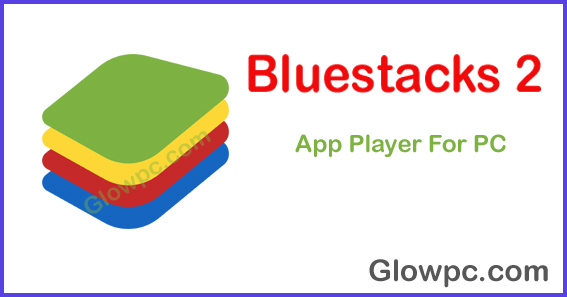BlueStacks is an American technology company known for the BlueStacks App Player and other cloud-based cross-platform products. The BlueStacks App Player is designed to enable Android applications to run on PCs running Microsoft Windows and Apple's macOS. The company was founded in 2009 by Jay Vaishnav, Suman Saraf, and Rosen Sharma, former CTO at McAfee and a board member of Cloud.com.
The company was announced May 26, 2011, at the Citrix Synergy conference in San Francisco. Citrix CEO Mark Templeton demonstrated an early version of BlueStacks onstage and announced that the companies had formed a partnership. The public alpha version of App Player was launched on October 11, 2011.[8] App Player exited beta on June 7, 2014. On July 23, 2014 Samsung announced [7] it had invested in BlueStacks. This brought total outside investment in BlueStacks to $2
BlueStacks App Player[edit]
The App Player, software that virtualizes an Android OS, can be downloaded in versions for Windows 10 and macOS. The software's basic features are free to download and use. Advanced optional features require a paid monthly subscription.[10] The company claims the App Player can run 1.5 million Android apps as of November 2019.[11] As of February 2021, BlueStacks have been downloaded over 1 billion times and has more than 500 million users.[12] App Player features mouse, keyboard, and external touchpad controls.
BlueStacks for Mac[edit]
On June 27, 2012, the company released an alpha-1 version of its App Player software for macOS,[13] while the beta version was released on December 27, 2012.
In April 2015, BlueStacks, Inc. announced that a new version of App Player for macOS, 2.0, was in development, which was released in July.[14]
BlueStacks 2[edit]
In December 2015, BlueStacks, Inc. released the new version BlueStacks 2.0[15] which lets users run multiple Android applications simultaneously.[16] BlueStacks 2.0 was also available for Mac OS X 10.9 Mavericks or later, till 2018.
BlueStacks TV (BTV)[edit]
On April 7, 2016, the company released BlueStacks TV which integrated Twitch.tv directly into the BlueStacks App Player.[17] This addition allows users to stream their apps to Twitch without the need for extra hardware or software. BlueStacks released Facebook Live integration in September 2016, allowing users to stream their gameplay to their Facebook profiles, Pages they control, or Facebook Groups they belong to.[18]
BlueStacks 3[edit]
In July 2017, BlueStacks released BlueStacks 3 based on a brand new engine and front-end design.[19] BlueStacks 3 added App Center which personalizes game suggestions, an account system, chat, new keymapping interface, and multi-instance. Multi-instance allows users to launch multiple BlueStacks windows using either the same or different Google Play account.
BlueStacks 3N[edit]
On January 19, 2018, BlueStacks announced the release of the BlueStacks + N Beta which runs on Android 7 (Android Nougat) and claimed to be the first and only Android gaming platform to have Android 7 at the time, since the majority of Android emulators ran Android 4.4 (KitKat), including prior BlueStacks versions.[20] This beta version is powered by an upgraded "HyperG" graphics engine allowing BlueStacks to utilize the full array of Android 7 APIs
BlueStacks 4[edit]
On September 18, 2018, BlueStacks announced the release of its latest flagship version, BlueStacks 4. BlueStacks 4 benchmarks 6-8x faster than every major mobile phone according to the Antutu benchmark.[21] BlueStacks 4 also includes dynamic resource management which only initializes the required Android libraries thus freeing resources. A new dock and search offer a clean user interface. New AI powered key-mapping tool auto maps keys in supported games with key customization also available for further tweaking. In addition, BlueStacks 4 supports[22] both 32-bit and 64-bit version of Android 7.1.2 Nougat.
Development for macOS has been restarted, and version 4 is currently available from the website as of November 2019, first released for Mac in January 2019.[23]
BlueStacks 4 64-Bit Beta[edit]
On January 17, 2019, BlueStacks released a 64-bit version of BlueStacks 4 via its early access program.[24] This version runs on a 64-bit version of Android 7.1.2 which allows for improved performance, and more efficient memory usage. The prerequisites for running this build include running a 64-bit version of Windows 8 or later, with virtualization enabled, and Hyper-V disabled. This 64-bit release allows the installation and usage of ARM64-v8a android applications.
BlueStacks 5[edit]
On May 19, 2021, BlueStacks released BlueStacks 5.[25]
Minimum requirements[edit]
Current minimum requirements for App Player for Windows include: Windows 7 or higher, 2 GB or higher system memory, 5 GB of hard drive space, administrator rights, and an Intel or AMD processor.[5] BlueStacks clashes with the BitDefender antivirus software.[26] An update to the latest graphic card driver version is also recommended.
Minimum requirements for macOS are: macOS Sierra or higher, 4 GB RAM, 4 GB disk space, and a model newer than 2014. BlueStacks has explicitly said that they have not supported Apple silicon yet.[27]6 million.[9]




